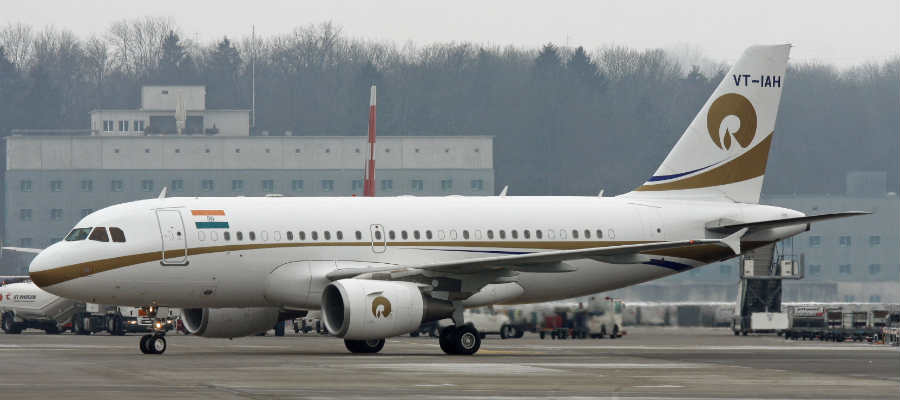BY KRISHNARAJ RAO
Are you afraid of bouncing a cheque? Most of us are afraid of arrest and prosecution under the Negotiable Instruments Act. But Dr Vijay Mallya and his executives at Kingfisher Airlines are not, evidently. In August and October 2011, Kingfisher gave Airport Authority of India (AAI) five cheques totaling Rs 121 crore. All of them bounced. And, so far as we can see, AAI has not taken any legal action.
But that’s not all. Many questions arise from information received by Pune-based RTI activist Sanjay Shirodkar last week from AAI. The dates of their issue, and the dates on which they were deposited are underlined in red on the document (Click here to read the RTI reply).
The papers reveal a story of collusion. One cheque for Rs 15 crore issued in mid-October 2011 was promptly deposited, and it bounced. The Economic Times reported this.
But in August, two months earlier, Kingfisher had given four cheques totaling Rs 106 crore and AAI did not deposit them until the 6-month validity period nearly expired in February. These cheques were presented over a 12-day period, and they bounced one by one. These cheques were drawn on Axis Bank and ICICI Bank, Mumbai.
Why did AAI officials not deposit the cheques earlier?
Were the officials following orders to hold on to these cheques? Orders from the Ministry of Aviation, maybe? Or were they just following friendly advice from the accounts department of Kingfisher Airlines? What could have been the reason?
Had these cheques been deposited immediately in August 2011, they might have been honoured. It is unlikely that the accountants at Kingfisher wrote these cheques without sufficient balance (This hypothesis can be verified from KFA’s account statements). If so, then the AAI officials responsible for the 6-month delay in depositing the cheques should be facing departmental action, if not criminal charges.
By waiting until Kingfisher’s coffers were empty, these AAI officials defrauded AAI and the Government of India of six months interest on Rs 106 crore and probably much more.
Are AAI officials usually slack in depositing cheques? No. Such delays in depositing cheques are only seen in one out of over 100 instances (Refer “Pic Charges” on page 6, where the cheque is of a few hundred rupees).
Why hasn’t Dr Vijay Mallya been prosecuted?
Let us see what the Section 141 of Negotiable Instruments Act, says:
“Offences by companies. –(1) If the person committing an offence under Section 138 is a company, every person who, at the time the offence was committed, was in charge of, and was responsible to the company for the conduct of the business of the company, as well as the company, shall be deemed to be guilty of the offence and shall be liable to be proceeded against and punished accordingly: Provided that nothing contained in this sub-section shall render any person liable to punishment if he proves that the offence was committed without his knowledge, or that he had exercised all due diligence to prevent the commission of such offence.”
No due diligence is evident; five cheques of such magnitude don’t bounce because somebody goofed up. In fact, deliberately giving bad cheques was probably Kingfisher’s way of buying time. So, Chairman and Managing Director Dr Vijay Mallya, who is responsible for the conduct of its business, is liable under Section 141 of the Act. Also, the signatory of the cheque is liable.
If Dr Mallya, his CEO Sanjay Aggarwal and others are not facing legal consequences, we need to ask why.
Many other airlines have also bounced cheques
These are circled in red on pages 4, 5 and 6 of the RTI reply file (Click here to read the RTI reply).
- Garuda Aviation Pvt Ltd – Rs 12 lakh in November 2011
- Qatar Airways – Rs 2.8 lakhs in October 2008
- Jet Airways – Rs 17 lakhs in July 2009
- Jet Lite Airways – Rs 16 lakhs in April 2010
- Emirates Airlines – Rs 6.7 lakhs in October 2009
- Spice Jet – Rs 67 lakh in January 2008
- Indigo Airlnes – Rs 7 lakh in April 2008
- Go Air – Rs 34 lakh in May 2008
Totaled up, these are not even one-hundredth of Kingfisher. Still, one wonders how AAI officials generally deal with all these Airlines, hospitality firms, duty-free shops and other defaulters. Do they smile kindly and remark, “Boys will be boys”? If so, then we hope that other government departments are not punishing the common man when he makes the same mistake. Mr Prime Minister, Sir, is the Government of India treating the common man in the same way as the King of Good Times?
(Krishnaraj Rao is an RTI activist. The opinions expressed by the author and those providing comments are theirs alone, and do not reflect the opinions of Canary Trap)
